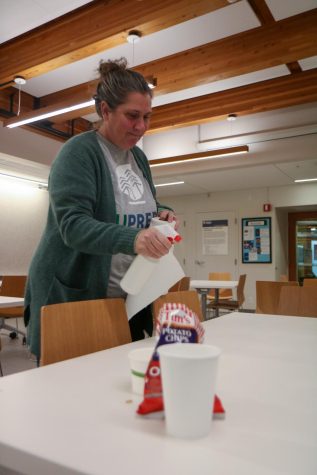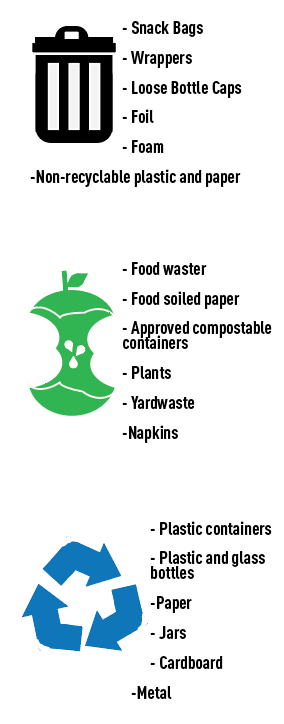Talkin’ Trash
UPrep students have a poor track record of cleaning up after themselves
 You drop a piece of fruit on the table. There is one minute until class starts and you see a few other pieces of food left around. Do you pick up the piece of fruit and walk it to the compost? Or do you think, it’s okay, someone will clean it up later?
You drop a piece of fruit on the table. There is one minute until class starts and you see a few other pieces of food left around. Do you pick up the piece of fruit and walk it to the compost? Or do you think, it’s okay, someone will clean it up later?
It is easy for students to feel like a tiny bit of food left behind doesn’t actually affect anyone. What many teachers and students have realized is if everyone at our school has that mindset, the messes that get left behind become a noticeable issue. Anyone who takes a good look at the Commons after lunch will find empty dishes, discarded food, and spilled drinks all over.
Assistant Head of Upper School Meg Anderson-Johnston also sees messes being left behind every day, from half-full juices left on tables to crumbs on the floor.
 “I think in general people clean up after themselves, but those that don’t are particularly egregious in their lack of cleaning,” Anderson-Johnston said.
“I think in general people clean up after themselves, but those that don’t are particularly egregious in their lack of cleaning,” Anderson-Johnston said.
Sophomore Tyson Scott has noticed messes lying around as well.
“People in large groups tend to lose track of their stuff and leave it behind after lunch,” Scott said.
Senior Megan Bolger thinks there are many different reasons that trash or food gets left behind as students rush from class to class or are busy socializing.
“People leave their messes because they are entitled and don’t feel like they need to clean up,” Bolger said. “Or they could just forget.”
Bolger also thinks that sometimes students don’t think it is their responsibility to clean up after themselves, assuming that someone else will clean up the mess later.
Science and math teacher Ragini Narasimhan has also noticed this issue of students leaving their messes around, and believes it has gotten worse after the pandemic.
“We have become so disconnected from the repercussions of our actions that we may not know how our actions affect each other,” Narasimhan said.
Both Anderson-Johnston and Narasimhan think that students looking out for each other is the best option to hold people accountable for their actions.
“The best resource to get people to change is the students because the faculty saying it doesn’t really seem to work,” Anderson-Johnston said.

Narasimhan believes that in the past few years, it seems as if people are looking out for each other less than they used to but knows that change is very possible.
“We can get back, we can get back to that kind, caring community,” Narasimhan said. “But we will need to put in joint efforts.”

